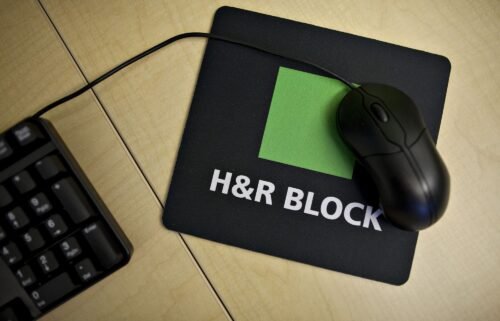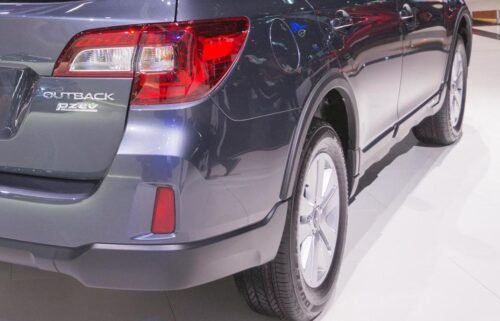SoftBank’s troubles don’t end with Wag. Here are 5 more investments to watch closely

SoftBank’s decision to abandon its $300 million investment in dog-walking startup Wag has raised more questions about the strategy of its mega tech fund.
The $100 billion Vision Fund, backed by Saudi Arabia, has poured huge amounts of money into tech startups around the world. Overall, it has chalked up healthy returns since launching in 2017, but some of its flashiest investments, such as Uber and Slack, have struggled on Wall Street since going public this year. Worse still, SoftBank had to bail out WeWork in October after it failed to pull off an IPO.
SoftBank CEO and founder Masayoshi Son warned investors at an earnings presentation last month that there could be other WeWork scenarios on the horizon, even as he pledged to stick to his strategy of betting big to pick technology’s future winners.
“Like the dog walking company and other portfolio companies, we may see similar problems surfacing,” Son said, referring to Wag.
Son didn’t go into details, but analysts have identified a few investments that could dent the Vision Fund’s returns in the near future.
Didi, Grab and Ola
Uber is the worst performer in the Vision Fund’s portfolio following a mega write down, and more trouble could be brewing in transportation and logistics, which represents 40% of the fund’s total investments.
The Vision Fund also has stakes in ride-hailing startups Didi, Grab and Ola, all of which “will likely face similar issues as Uber, with their economics likely remaining challenged until robo-taxis become viable and eliminate the cost of the driver,” Bernstein analyst Chris Lane wrote in a note on Tuesday.
SoftBank last month took an $8.9 billion hit from Uber and other investments for the July to September period.
Other transport bets include on-demand food delivery company DoorDash, Nauto, which uses cameras and artificial intelligence to understand driver behavior, and self-driving car company GM Cruise, an affiliate of the US automaker. The futures of those firms are similarly linked to autonomous driving, said Lane.
The Vision Fund has invested $31.4 billion in about two dozen transportation and logistics startups around the world. As of September 30, the fair value of those companies was pegged at $31.1 billion, which means the fund has lost about 1% on its investments, according to Lane and SoftBank’s presentation material.
Oyo and OneConnect
At WeWork, SoftBank was the sole or main investor in the last few rounds, driving the company’s sky high valuation. Investors are now worried that WeWork wasn’t an exception, but more of a rule, according to Jefferies analyst Atul Goyal.
“Apparently, this pattern has repeated in many cases,” including Indian hotel startup Oyo and financial technology company OneConnect, Goyal said in a note on Monday.
In October, Oyo raised $1.5 billion in fresh funds from its founder Ritesh Agarwal, SoftBank and other investors. Funding for the round reportedly came from Japanese banks “which could not have possibly lent that money to Oyo’s founder without assurances and guarantees from SoftBank Group,” Goyal said.
OneConnect, a unit of Chinese insurance giant Ping An that helps financial institutions manage digital transactions, launched its public offering in the United States last week. The company could raise up to $504 million, selling 36 million shares for between $12 and $14 each, according to an SEC filing last Tuesday.
The price range values OneConnect at between $4.4 billion and $5.2 billion, falling well short of the $7.4 billion Ping An said the unit was worth last year, when it raised $650 million from investors including SoftBank.
If SoftBank continues to inject cash into such companies at inflated valuations, other investors may be scared off. That could leave SoftBank and the Vision Fund as sole or majority investors, “but this will create the specter of [WeWork] all over again,” said Goyal.
The Vision Fund is still ahead
Despite the billions committed to the WeWork bailout and written off at Uber, the Vision Fund has had a respectable run so far.
The fund officially closed in September, after deploying about 85% of its cash. It holds 15% back to pay preferred investors an annual 7% coupon, and for follow-on investments in fund companies.
Son’s mega tech fund “has achieved an [internal rate of return] of 24% in its 28 months of operation, with gains of $11.4 billion from its investment in 90 companies,” according to Lane, the Bernstein analyst. That return does not take into account inflation, cost of capital or financial risks.
Among the 15 analysts polled by data provider Refinitiv, 14 have a buy or strong buy recommendation for SoftBank’s stock. Only one analyst, Goyal of Jefferies, rates SoftBank a hold.
Shares in SoftBank ticked down 0.3% in Tokyo on Tuesday, down nearly 30% from a high in April.




